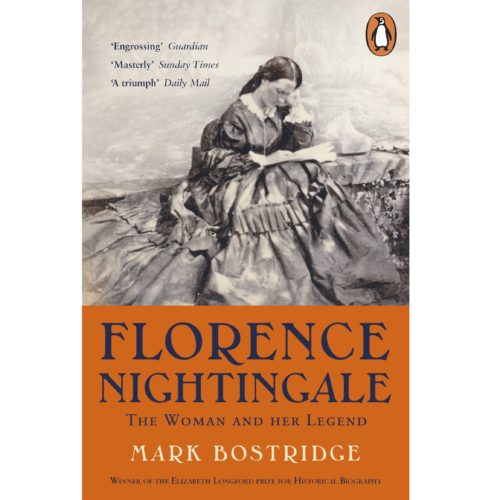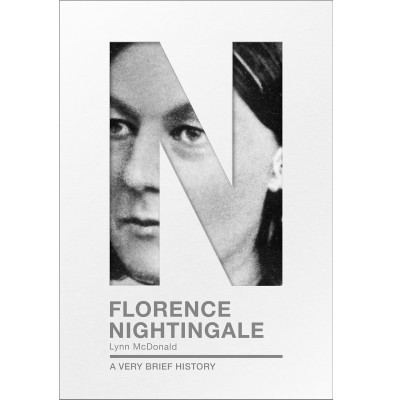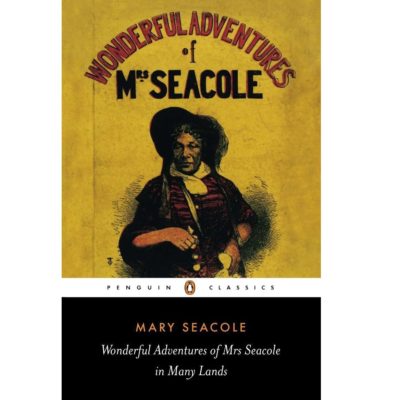-
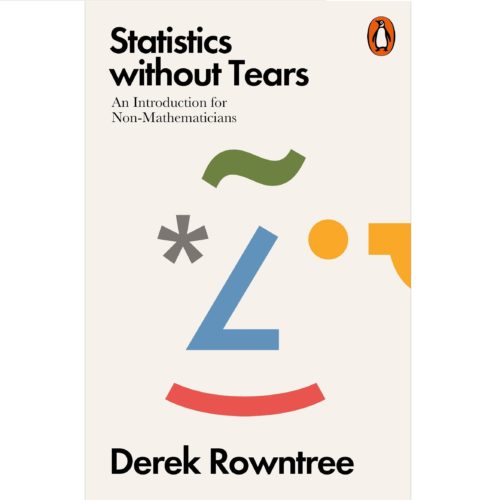 Why do we need Statistics? What do terms like 'dispersion', 'correlation', 'normal distribution' and 'significance' actually mean? How can I learn how to think statistically? This bestselling introduction is for anyone who wants to know how statistics works and the powerful ideas behind it. Teaching through words and diagrams instead of requiring you to do complex calculations, it assumes no expert knowledge and makes the subject accessible even to readers who consider themselves non-mathematical. This clear and informative 'tutorial in print' includes questions for you to respond to in the light of what you have read so far, ensuring your developing ability to think statistically.
Why do we need Statistics? What do terms like 'dispersion', 'correlation', 'normal distribution' and 'significance' actually mean? How can I learn how to think statistically? This bestselling introduction is for anyone who wants to know how statistics works and the powerful ideas behind it. Teaching through words and diagrams instead of requiring you to do complex calculations, it assumes no expert knowledge and makes the subject accessible even to readers who consider themselves non-mathematical. This clear and informative 'tutorial in print' includes questions for you to respond to in the light of what you have read so far, ensuring your developing ability to think statistically. -
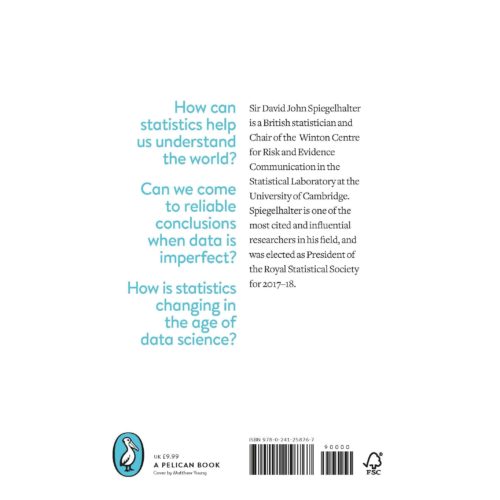
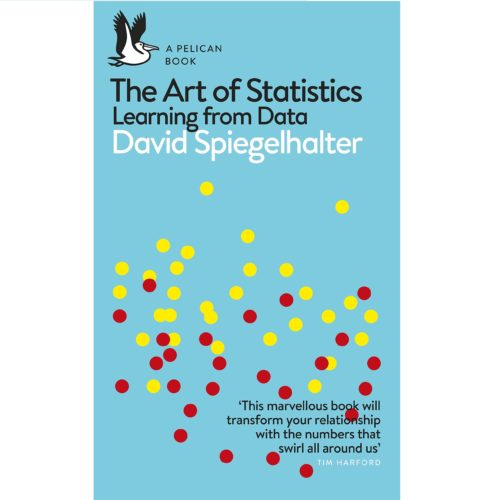 Do busier hospitals have higher survival rates? How many trees are there on the planet? Why do old men have big ears? David Spiegelhalter reveals the answers to these and many other questions - questions that can only be addressed using statistical science. Statistics has played a leading role in our scientific understanding of the world for centuries, yet we are all familiar with the way statistical claims can be sensationalised, particularly in the media. In the age of big data, as data science becomes established as a discipline, a basic grasp of statistical literacy is more important than ever. In The Art of Statistics, David Spiegelhalter guides the reader through the essential principles we need in order to derive knowledge from data. Drawing on real world problems to introduce conceptual issues, he shows us how statistics can help us determine the luckiest passenger on the Titanic, whether serial killer Harold Shipman could have been caught earlier, and if screening for ovarian cancer is beneficial.
Do busier hospitals have higher survival rates? How many trees are there on the planet? Why do old men have big ears? David Spiegelhalter reveals the answers to these and many other questions - questions that can only be addressed using statistical science. Statistics has played a leading role in our scientific understanding of the world for centuries, yet we are all familiar with the way statistical claims can be sensationalised, particularly in the media. In the age of big data, as data science becomes established as a discipline, a basic grasp of statistical literacy is more important than ever. In The Art of Statistics, David Spiegelhalter guides the reader through the essential principles we need in order to derive knowledge from data. Drawing on real world problems to introduce conceptual issues, he shows us how statistics can help us determine the luckiest passenger on the Titanic, whether serial killer Harold Shipman could have been caught earlier, and if screening for ovarian cancer is beneficial. -
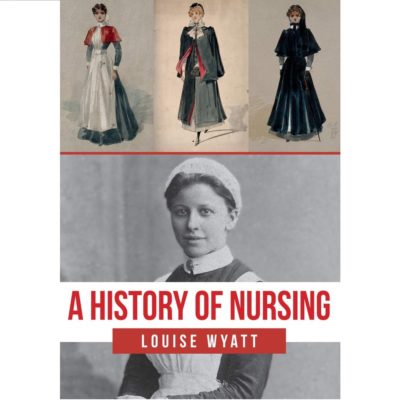 A History of Nursing explores the history of nursing by investigating the earliest records of the caring profession, how it progressed and what established it along the way to becoming the nursing we see today. It starts at the beginning of the story -? how, once upon a time, all we had to depend on was Mother Nature. Over time, education and standards improved for the safety, development and governance of the profession. Not everything was plain sailing and the book introduces lesser-known people who made this possible, sometimes at great cost to themselves, and the effect military nursing had on the nineteenth century in turning nursing from religious principles to the secular standards we see today. How did nursing go from being knowledge handed down through ancient scripts, folklore and sometimes by accident, to the degree-level, accountable practice of modern times? And why do nurses not wear hats anymore? A History of Nursing answers all these questions and more. All shop sales support the Florence Nightingale Museum, a registered charity, and its work.
A History of Nursing explores the history of nursing by investigating the earliest records of the caring profession, how it progressed and what established it along the way to becoming the nursing we see today. It starts at the beginning of the story -? how, once upon a time, all we had to depend on was Mother Nature. Over time, education and standards improved for the safety, development and governance of the profession. Not everything was plain sailing and the book introduces lesser-known people who made this possible, sometimes at great cost to themselves, and the effect military nursing had on the nineteenth century in turning nursing from religious principles to the secular standards we see today. How did nursing go from being knowledge handed down through ancient scripts, folklore and sometimes by accident, to the degree-level, accountable practice of modern times? And why do nurses not wear hats anymore? A History of Nursing answers all these questions and more. All shop sales support the Florence Nightingale Museum, a registered charity, and its work. -
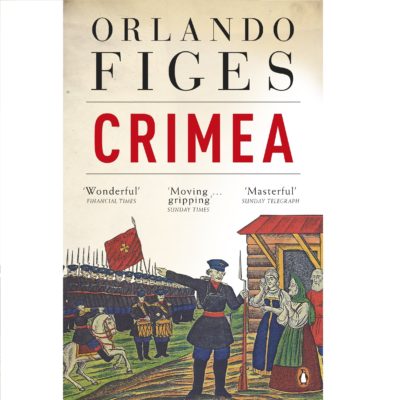 by Orlando Figes The Crimean War one of the fiercest battles in Russia's history, killing nearly a million men and completely redrawing the map of Europe. Pitting the Tsar's empire against an alliance of Britain, France and the Ottoman Empire, it was the first conflict to use photography, the telegraph and newspapers; a war over territory, from the Balkans to the Persian Gulf; a war of religion, driven by a fervent, populist belief by the Tsar and his ministers that it was Russia's task to rule all Orthodox Christians and control the Holy Land; it was the original 'total war'. Orlando Figes' vivid new book reinterprets this extraordinary conflict. Bringing to life ordinary soldiers in snow-filled trenches, surgeons on the battlefield and the haunted, fanatical figure of Tsar Nicholas himself, Crimea tells the human story of a tragic war. All shop sales support the Florence Nightingale Museum, a registered charity, and it's work.
by Orlando Figes The Crimean War one of the fiercest battles in Russia's history, killing nearly a million men and completely redrawing the map of Europe. Pitting the Tsar's empire against an alliance of Britain, France and the Ottoman Empire, it was the first conflict to use photography, the telegraph and newspapers; a war over territory, from the Balkans to the Persian Gulf; a war of religion, driven by a fervent, populist belief by the Tsar and his ministers that it was Russia's task to rule all Orthodox Christians and control the Holy Land; it was the original 'total war'. Orlando Figes' vivid new book reinterprets this extraordinary conflict. Bringing to life ordinary soldiers in snow-filled trenches, surgeons on the battlefield and the haunted, fanatical figure of Tsar Nicholas himself, Crimea tells the human story of a tragic war. All shop sales support the Florence Nightingale Museum, a registered charity, and it's work. -
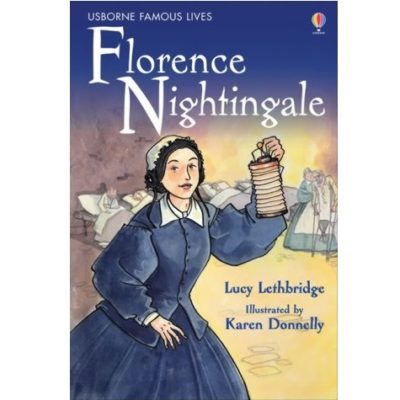 Written by Lucy Lethbridge and illustrated by Karen Donnelly. Born into a wealthy family, Florence Nightingale could have lived a life of leisure and luxury. Instead she longed to be a nurse. In 1830, that was the last thing a rich girl could do - but Florence was no ordinary girl. All shop sales support the Florence Nightingale Museum, a registered charity, and its work.
Written by Lucy Lethbridge and illustrated by Karen Donnelly. Born into a wealthy family, Florence Nightingale could have lived a life of leisure and luxury. Instead she longed to be a nurse. In 1830, that was the last thing a rich girl could do - but Florence was no ordinary girl. All shop sales support the Florence Nightingale Museum, a registered charity, and its work. -
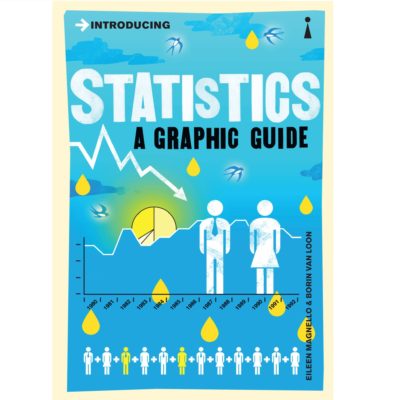 From the medicine we take to the cars we drive, the clothes we wear adn even the beer we drink, statistics hae given shape to the world we inhabit. However, for the media, statistics are routinely 'damning', 'horrifying' or, occasionally, 'encouraging'. Exploring the history, mathematics, philosophy and practical use of statistics, Eillen Magnello - with the help of Borin Van Loon's deft illustration - traces the rise of statistics from the ancient Babylonians, Egyptians and Chinese, to the censuses of the Romans and the Greeks, and the modern emergence of the term itself in Europe. They explore the English Victorians such ass William Farr who created the modern discipline of vital statistics, and Francis Galton, W. F. R. Weldon and Karl Pearson who established the fundamentally different modern discipline of mathematical statistics. Introducing Statistics is an enjoyable, suprise-filled tour through a subject that is both fascinating, and crucial to understanding our world. All shop sales support the Florence Nightingale Museum, a registered charity, and its work.
From the medicine we take to the cars we drive, the clothes we wear adn even the beer we drink, statistics hae given shape to the world we inhabit. However, for the media, statistics are routinely 'damning', 'horrifying' or, occasionally, 'encouraging'. Exploring the history, mathematics, philosophy and practical use of statistics, Eillen Magnello - with the help of Borin Van Loon's deft illustration - traces the rise of statistics from the ancient Babylonians, Egyptians and Chinese, to the censuses of the Romans and the Greeks, and the modern emergence of the term itself in Europe. They explore the English Victorians such ass William Farr who created the modern discipline of vital statistics, and Francis Galton, W. F. R. Weldon and Karl Pearson who established the fundamentally different modern discipline of mathematical statistics. Introducing Statistics is an enjoyable, suprise-filled tour through a subject that is both fascinating, and crucial to understanding our world. All shop sales support the Florence Nightingale Museum, a registered charity, and its work. -
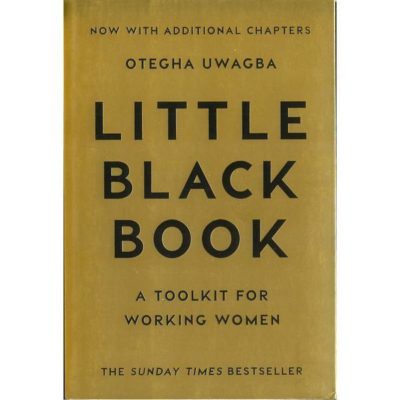 Little Black Book: A Toolkit for Working Women is the modern ?career guide every creative woman needs, whether you?re just starting out or already have years of experience. Full of fresh ideas and no-nonsense practical advice, Otegha Uwagba takes you through everything you need to build a successful self-made career: from money management to building a killer brand, via a crash course in networking like a pro and tips on overcoming creative block. With contributions from trailblazing creative women- including acclaimed author Chimamanda Ngozi Adichie, Refinery29 co-founder Piera Gelardi, The Gentlewoman?s Penny Martin and many more- Little Black Book is a curation of essential wisdom and hard-won career insights. Whether you?re a thinker, a maker, an artist or an entrepreneur, you?ll find inspiration for your working life here. All ship sales support the Florence Nightingale Museum, a registered charity, and its work.
Little Black Book: A Toolkit for Working Women is the modern ?career guide every creative woman needs, whether you?re just starting out or already have years of experience. Full of fresh ideas and no-nonsense practical advice, Otegha Uwagba takes you through everything you need to build a successful self-made career: from money management to building a killer brand, via a crash course in networking like a pro and tips on overcoming creative block. With contributions from trailblazing creative women- including acclaimed author Chimamanda Ngozi Adichie, Refinery29 co-founder Piera Gelardi, The Gentlewoman?s Penny Martin and many more- Little Black Book is a curation of essential wisdom and hard-won career insights. Whether you?re a thinker, a maker, an artist or an entrepreneur, you?ll find inspiration for your working life here. All ship sales support the Florence Nightingale Museum, a registered charity, and its work. -
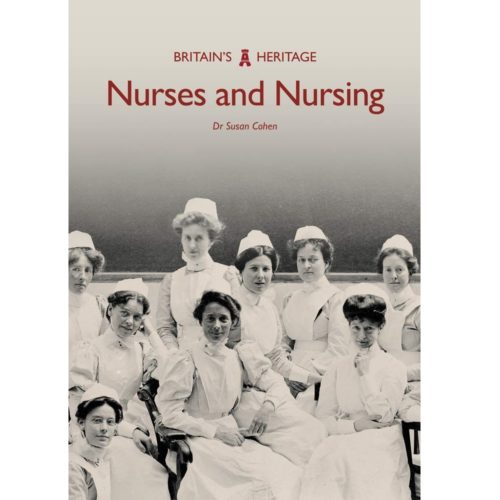 Nurses and nursing are firmly rooted in Britain's heritage, for the profession as we know it today owes much to the pioneering work of Florence Nightingale. Before she helped the establish the first nurse training school in Liverpool in the late 1800s, the women who looked after the sick were a motley mix. The role of the nurse has developed from the untrained handywoman and private nurse, through the early nurses who acted as 'health missioners', to the highly trained professionals we recognise today. Nurse training has evolved to reflect the advances in medical treatment and nurses have been able to engage more widely with the community by undergoing additional training as, for example, district nurse, school nurses, midwives, health visitors and mental health nurses. During both world wars, nurses made a special contribution on the home front and overseas. Using first-hand accounts from nurses through the ages, Susan Cohen takes us on a nostalgic journey through the history of nurses and nursing in Britain, from the pre-Nightingale days through to the post-NHS era. All shop sales support the Florence Nightingale Museum, a registered charity, and its work.
Nurses and nursing are firmly rooted in Britain's heritage, for the profession as we know it today owes much to the pioneering work of Florence Nightingale. Before she helped the establish the first nurse training school in Liverpool in the late 1800s, the women who looked after the sick were a motley mix. The role of the nurse has developed from the untrained handywoman and private nurse, through the early nurses who acted as 'health missioners', to the highly trained professionals we recognise today. Nurse training has evolved to reflect the advances in medical treatment and nurses have been able to engage more widely with the community by undergoing additional training as, for example, district nurse, school nurses, midwives, health visitors and mental health nurses. During both world wars, nurses made a special contribution on the home front and overseas. Using first-hand accounts from nurses through the ages, Susan Cohen takes us on a nostalgic journey through the history of nurses and nursing in Britain, from the pre-Nightingale days through to the post-NHS era. All shop sales support the Florence Nightingale Museum, a registered charity, and its work.

